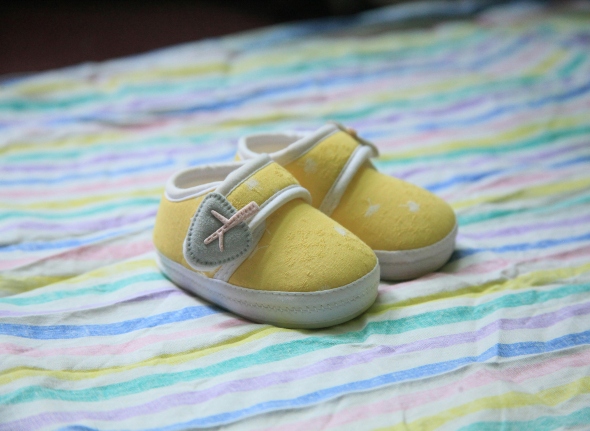What financial help is available for young parents?
In this article, read an overview of the financial help that’s available for young parents and learn what support you might be able to get. This article is not legal advice and not all of these benefits are available to every person. If you’re not sure what benefits you’re entitled to, you should seek specialist advice. There are links to services which can help you at the bottom of this article.


Key Messages
It’s no secret that babies are expensive, but having enough money is vitally important for you and your baby’s health and wellbeing. As well as the basics like food, nappies and clothing, it really helps your child’s development if you can buy toys and books and be able to afford to take them on outings.
The government makes payments to parents to help them because it is in everyone’s interest to bring up children who are safe, healthy and able to achieve their potential. Being a parent is a difficult, unpaid job, and everyone needs support. You also need the opportunity to look after yourself and continue to develop your own education or career in the future.
- You don’t have to give up education or training
- You don’t have to give up work
- Don’t miss out on help
- If you live with your parents, you could have a choice whether they claim for you, or you claim for yourself, and the amount may be different
- If you live on your own, you can claim benefits as a lone parent
- If a partner lives with you (wife, husband, boyfriend, girlfriend- it does not matter whether s/he is your baby’s parent), and you are both aged at least 16, you count as a couple and most benefits depend on your joint income
Healthy Start Scheme
Depending on your situation, you might qualify for the Healthy Start scheme. This is a payment card system where you could get help to buy food and milk. The Healthy Start card is credited every week with a set amount, and this is then available to be spent on the following items:
- milk
- fresh, frozen or tinned fruit and vegetables
- fresh, dried or tinned pulses.
The amount you’ll get on the card varies depending on how old your children are:
- £4.25 each week of your pregnancy (from the 10th week of your pregnancy)
- £8.50 each week for children from birth to 1 year old
- £4.25 each week for children between 1 and 4 years old.
This money will stop after your child’s 4th birthday, or if you no longer receive benefits.
You can find out more about eligibility to the Healthy Start Scheme on their website.
Benefits
Child Benefits
You cannot claim any other benefits for yourself or for your baby until you are at least 16. However, someone else in in your family could claim child benefit for your baby, this would usually be your parent, or the person who claims child benefit for you. If you claim child benefit, you receive around £8 a week. You must claim within three months of the birth or you will lose your money. You can make a claim for child benefit on the Gov.uk website, and find out more information on the Citizens Advice website.
Universal Credit
Universal Credit is a new, simpler benefits system. It has replaced 6 different benefits that were previously available and helps you get the financial support you’re entitled to in one easier way. You can find out more about the switch to Universal Credit on the Gov.uk website. Here are a few important things to consider with Universal Credit:
- You may be able to get Universal Credit if you are at least 16 and are responsible for a child.
- You may be able to claim Universal Credit if you are at least 29 weeks pregnant (but not if you are a care leaver)
- You may be able to claim Universal Credit if you had a baby or your baby was stillborn in the past 15 weeks (but not if you are a care leaver)
- If you are aged 18 and over, you can also use this free and confidential calculator to find out what benefits you are entitled to claim

Housing
If you live with your parents, or another relative, you usually cannot get any financial help for your housing situation. It is between you and the person you live with whether you agree to support financially with things such as bills. If you are 18 or over and working, the person you live with may get less help with their rent because you are living there.
If you live on your own, or with your partner, you can get in touch with your local council department for support with your housing costs. Use the About Greater Manchester website to see the 10 Local Authority websites. Then, navigate to the relevant housing section on your local authority’s website to find out more about what support is available in your area.
Education and Training
If you are still in school or college, you do not have to give up your education because you are pregnant. You are allowed to take a break from your course and go back when you are able to. Any benefits that you claim, or a member of your family claims for you, can usually continue during a temporary interruption to your education.
Work
If you have a job, you do not have to give it up just because you are pregnant. It is against the law for an employer to sack you just because you are pregnant, or to pressure you into giving up your job. Your employer has a duty to make changes to your job if there are some things you cannot do for health and safety reasons.
You have the right to paid time off for antenatal appointments.
You must take at least 2 weeks off when you have the baby, or 4 weeks if you work in a factory.
If you have been working for long enough and earning enough, you may be entitled to statutory maternity pay or maternity allowance.
Statutory Maternity Pay (SMP)
If you have been employed for at least 26 weeks with the same employer and you earned at least £123 a week for 8 weeks, you could be entitled to Statutory Maternity Pay.
You have the right to return to work after maternity leave of up to one year.
SMP is payable for 39 weeks.
You are still entitled to SMP if your if your job has ended or you do not intend to go back to work.
If you have a partner and you both work, you may be entitled to Shared Parental Leave and Pay, which allows you both to share the time off work to look after the baby.
Learn more about SMP on the Gov.uk website.
Maternity Allowance
You might be able to get maternity allowance if you are not entitled to SMP but you have been working for at least 26 weeks out of the 66 weeks before your baby is due. It does not have to be 26 weeks in a row and can include holiday, evening or weekend jobs, as long as you were earning at least £30 a week in any 13 of those weeks.

Early Education and childcare
Pre- school is vitally important for your child’s development, and gives them an opportunity to learn new skills and mix with other children. It also gives you time to continue your education, training or start work. If you are in education, your school or college may provide a nursery or a grant to pay for the costs of childcare.
Find out More
See below for further signposting links and support:
- Advice for things you might need support with during pregnancy on the NHS website
- Support for single parents and their children on the Gingerbread charity website
- General support for young parents on the Family Lives website
- Learn more about what you and your baby are entitled to on the Citizens Advice website
- General support on pregnancy on the Brook website
Related

What is the Real Living Wage?
[rt_reading_time...

What is investing and how do I get started?
[rt_reading_time...
